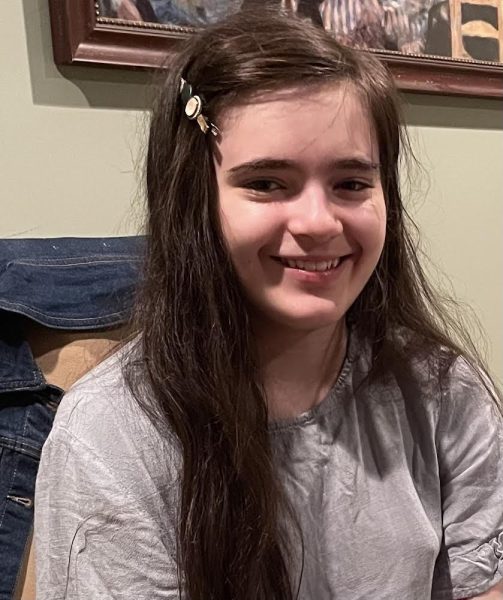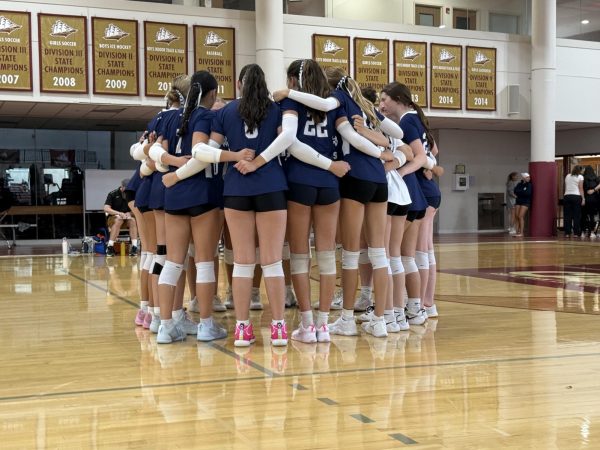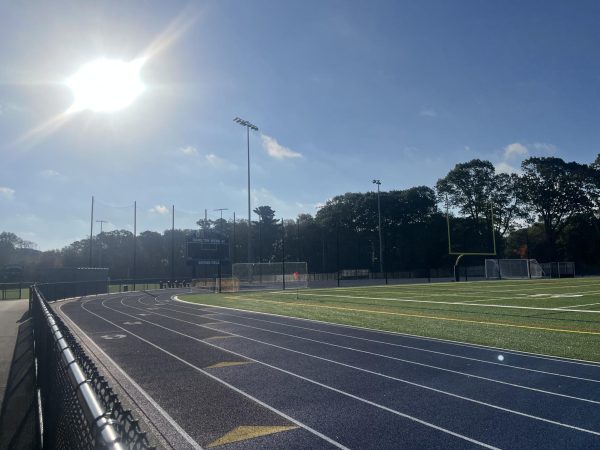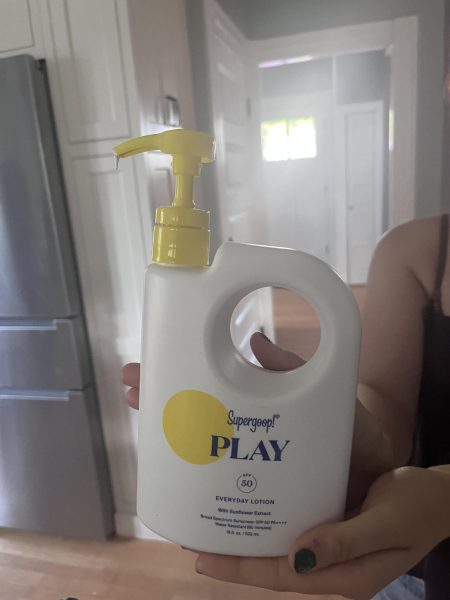One Step At A Time
This personal memoir won an Honorable Mention from the 2023 Scholastic Art and Writing Awards.
CONTENT WARNING: Please be aware that this essay discusses topics of surgery.
“Mr and Mrs *Silva,* I am sorry to break this to you, but if your daughter doesn’t have brain surgery in the next two weeks, she will live the rest of her life in a vegetative state. She will be confined to a motorized wheelchair, unable to feed herself, walk, or even control her body.”
I do not hear this conversation between my neurosurgeon and my parents, for I am in the waiting room drawing rainbows on pink construction paper; so, I am completely caught off guard when my dad abruptly rushes towards me after the appointment and grabs my hand just a bit too tightly as we are about to leave. I notice that my dad’s eyes are watery and red, and that his face looks kind of swollen and blotchy, and I start to feel sick; yet, this queasiness that I suddenly feel in my stomach is quickly replaced with a feeling of sheer exhilaration, a mere forty minutes later, when my dad boosts me up to reach the worn-in leather seat in a tow truck that is called just for us! Yes, my parents’ car actually broke down on the highway as they were trying to process the surgeon’s harrowing news; yet, my heart was dancing a little jig as I experienced my first tow truck ride. I am so high off the ground and feel so tall! The windows are open, the crisp autumn air is roaring through my hair, and the radio is blasting some electrifying tune as I bop up and down to the beat. How ironic life is: my parents are reeling and perhaps feeling more defeated and frightened than ever, and I am feeling completely and utterly carefree and alive!
Nevertheless, just two weeks later, (and less than one month after my sixth birthday), I am being asked to count backwards from ten to one as a strange, plastic cup is being placed around my lips. I want to speak. I want to tell my mom that I love her, but all I can feel is this unfamiliar rush of cold air — and then nothingness. I struggle to open my eyes after a six-hour brain surgery, as the nurses keep dragging an ice-cold, wet rag across my cheeks and then flicking my face with their fingers to arouse me from my forced hibernation. I, of course, am unaware of the emotional trauma that I am causing everybody by not waking up. I am just trying to get my bearings as I struggle to readjust my eyes, which feel like they are being stabbed by the fluorescent lights; moreover, all of these machines’ high-pitched, shrill beeps feel like a knife to my eardrums. I can’t seem to rid myself of this strange, metallic taste in my mouth, and I am nauseated by the smell of bitter antiseptic and sweat-drenched plastic. I try to point to my throat, for I am convinced that I am choking since my tongue is literally stuck to the roof of my chalky mouth, but I cannot seem to move my arms. I feel like I have been clamped into a vise: I can’t feel my legs or turn my head from side to side. Even the pictures of Cookie Monster and Elmo on the ceiling and the little tiger paws on my hospital gown cannot comfort me; but then my mom, who is caressing my free hand, begins to softly sing for me the chorus to my favorite song: “You are my sunshine, my only sunshine. You make me happy when skies are gray. You’ll never know, dear, how much I love you, so please don’t take my sunshine away” — and I am moved to tears. Though nothing feels right or seems normal, I just know that I will somehow get through this with my family’s support and love.
At least this is how I feel until I awaken the next morning still tethered by tubes and countless wires to this hard hospital bed in a different room — my own room. Here, there are no vibrant colors or Sesame Street characters on the walls or ceiling, just drab, yellow paint, which is chipping in several places, and a tacked-up monochromatic poster explaining how to properly wash your hands. I’m sweaty and burning up, as the sun keeps screaming through the unshaded window. I try to turn away from the sun’s unflinching glare, but I still can’t turn my head, and this realization causes me to swallow hard as my eyes tear up. I try to shield my face from the sun, but I then realize that my right hand, which is attached by thick, clear tape to this hard board, has an IV jammed into it. As I try to move my left arm, I feel a blood pressure cuff “hugging me” too tightly, as two clunky compression boots keep squeezing my limbs like a boa constrictor fatally choking off its victim’s blood flow.
Though I feel like I have been run over by a truck, I am told that my physical therapist is right outside my door, ready for our first of many grueling sessions. She wastes no time, as she speed walks into my room, claps her hand twice, and exclaims, “Voom! Voom. It’s time to begin!” I don’t even remember her introducing herself or saying hello; I just remember her asking me to wiggle my fingers and toes. I can barely see her, for she towers over me as I lie in bed, and when she speaks, she sounds as if she is crunching and breaking glass in her mouth. She is just this faceless, forceful, no-nonsense woman with bulging biceps and veiny forearms. I expect her to leave after I comply with her wishes, but she doesn’t budge. Instead, she asks me to try to lift my arms and legs up and down while in bed. This quickly turns into an exhausting game of Simon says, except Simon always says and I am always expected to mimic Simon’s movements— and I can’t. I can’t! My arms and legs feel like lead. Will I ever feel like myself again? I want her to go. I want this game to end, but she informs me that we will be doing these exercises three times a day every day until I am able to do so easily. As she leaves, one of the monitors which measures my vital signs blares loudly as a red light keeps ominously blinking.
The next morning begins exactly like the one before, as if someone keeps pressing the repeat button: sleep, eat, exercise, nap, eat, exercise, nap, eat, exercise, sleep. After I finish my breakfast, my physical therapist comes in and asks me, yet again, to lift my arms and legs in bed; but this time, to my surprise, I can! I feel this strange sense of pride wash over me, as I begin to think that I just may finally be returning back to myself; but my personal victory is short-lived, for the physical therapist then asks me to sit up without assistance. Every part of me hurts as I strain to stay in a sitting position, but my upper body continually lurches from side to side until my stomach muscles completely collapse and my head sinks back onto my pillow. Why can’t I do what was once so simple for me?
Nevertheless, by nighttime, I have experienced not one, but two big breakthroughs: I can sit up unassisted and I can turn my head from side to side. For the first time, I can really see my mom, who has been sitting to my side in this stiff, green sleeping chair since the beginning. Her hair is disheveled and her eyes, which are bloodshot, are rimmed with dark circles.
“Have you slept at all, Mom?” I ask with a mix of concern and guilt.
She grabs my hand, and dismissively says, “Don’t worry about me. Let’s just get you better. Is there anything your dad and sister can bring from home that would bring you some joy?”
I feel a smile creep up on my face as my pupils dilate: “I think I want to play with my Elsa doll!”
This is the first time that I have felt any desire to play since my surgery. When I finally hold Elsa in my arms, I stroke her long, blond hair, and sing “For the first time in forever, there’ll be music, there’ll be light. For the first time in forever, I’ll be dancing through the night.” I then turn my head towards my mom and see that her eyes are welling up with tears. When she reassures me that they are happy tears, I feel all warm and toasty inside. Today was a good day.
For the remainder of my hospital stay, I cycle between the thrill of a personal triumph and the sting of a personal failure. Yes, I can finally stand in place when my physical therapist and my mom support each of my arms, yet I crumple like an old rag doll the second they let go. Yes, after an entire day of trying and failing, I can finally stand for several minutes on my own, but I crash — hard — into the hospital’s protective railings the second that I attempt to walk, by myself, up or down one of its ramps. I repeatedly face-plant on the physical therapist’s gym mat, which has left a purplish bruise on my forehead, and I feel disoriented by the rubbery smell of the mat and the smell of chlorine coming from the bleached vinyl floor underneath; furthermore, I feel nauseated by the taste of fresh blood in my mouth each time I bite my lower lip as I am falling. Yet I also feel this surge of energy when I am able to push myself further than I could before. I am like a pilot making her first solo flight: it may not be perfectly smooth, but each bump along the way makes the final destination all the sweeter, and it is my flight, which makes it that much more meaningful.
When I am finally given my discharge papers, and my nurse begins to remove my IV, I notice that the sun is beaming through my window. It is no longer blinding me, but illuminating my hidden strength and ushering in new possibilities for me. I start to appreciate just how far I have come: after my brain surgery, I couldn’t even turn my head from side to side, and now I can, with a little assistance, walk up and down the hospital’s ramps. I am capable of far more than I had ever realized.
A year later, after spending a month and a half at home relearning how to walk and climb stairs, I am leaping and twirling in dance classes and running down the length of soccer fields to help my teammates score a goal. My recovery has taught me an invaluable lesson: I can always find my way if I just take things one step at a time.

Cassi Sullivan is a sophomore at Hamilton-Wenham Regional High School. She loves to play the violin, paint, write poetry, play ping pong, and hang out...






